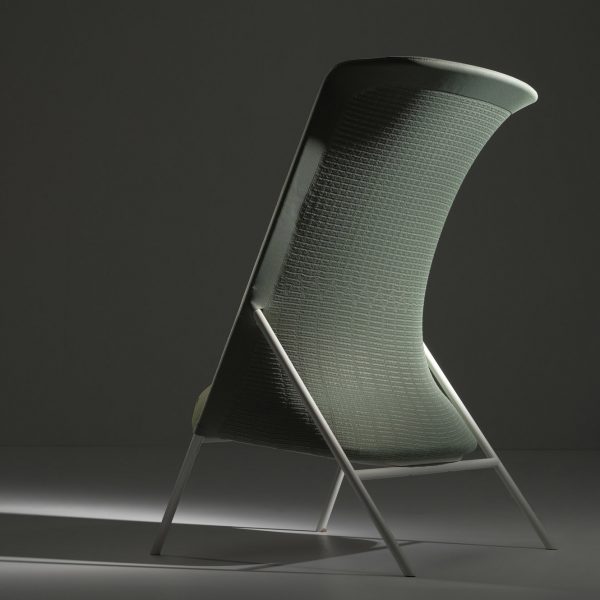Sustainability-driven designers including Richard Hutten and Lilian van Daal have contributed to Rethink Softly – a project by Rianne Koens dedicated to creating seating that doesn’t rely on polyurethane foam.
Hutten, van Daal, Koens and British studio Jones & Partners all created foam-free or mostly foam-free chairs and stools for the project, with the successful prototypes being produced and released by Turkish manufacturer Deberenn.
Koens, who is both a designer and a circularity consultant, began Rethink Softly to inspire the furniture industry to move away from using polyurethane foam as a padding and structuring material.
Koens originally visited Deberenn to do a sustainability assessment focused on waste and recycling but ended up asking the brand and its owner, architect Mustafa Kadioglu, to consider a shift in direction.
“After he took me through the soft seating factory, I asked the owner to give me half an hour to brainstorm,” she told Dezeen.
“And after half an hour I said: ‘I can only shake your hand about waste management. Congratulations on that. But if you want to make a difference in soft seating, you just have to stop using foam’.”
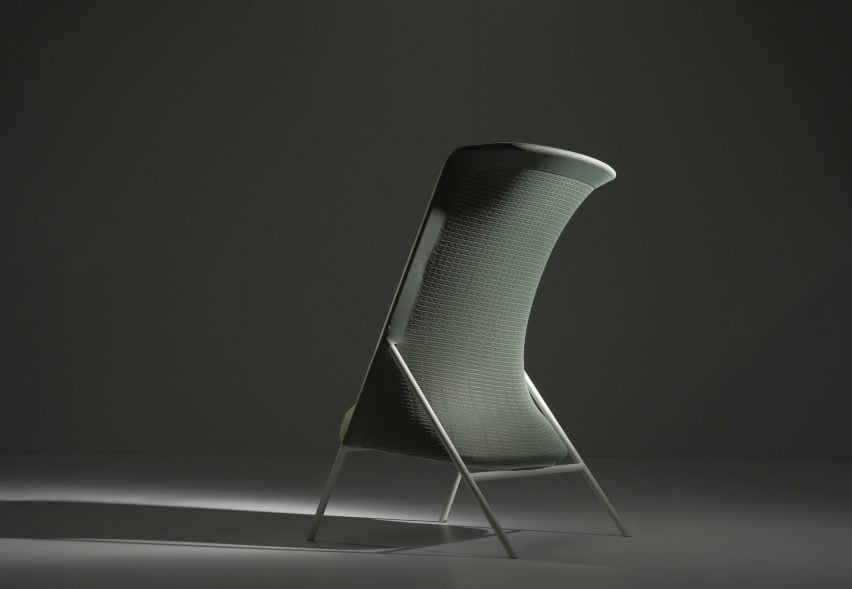
This suggestion was not immediately embraced by Kadioglu, whose brand services the contract market with foam-based sofas, armchairs, task chairs and pouffes.
“Half of his production facility was filled with foam,” said Koens. “He was looking at me like: ‘Why? We’re using it in such an efficient way, with less waste’. But the whole problem is the material itself.”
As well as being made from crude oil like all traditional plastic products, foam is considered particularly concerning for environmental sustainability and public health because it is nearly impossible to recycle and high in toxic additives.
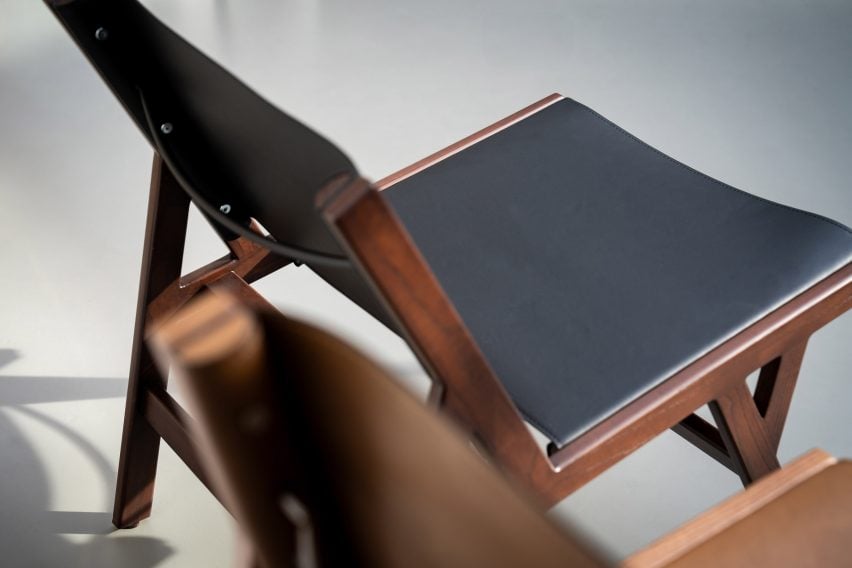
To Koens’ surprise, Kadioglu was swayed by her argument and ultimately suggested developing and releasing the Rethink Softly range under the Deberenn brand. Previously, it was a project she was going to undertake herself through her company Otura.
The project involved bringing together eight teams of designers and material suppliers, who were given a strict sub-brief based on a material, process or seating type.
Several of the investigations did not yield a successful prototype in time – including one based on mycelium – but five of them did and are going into production.
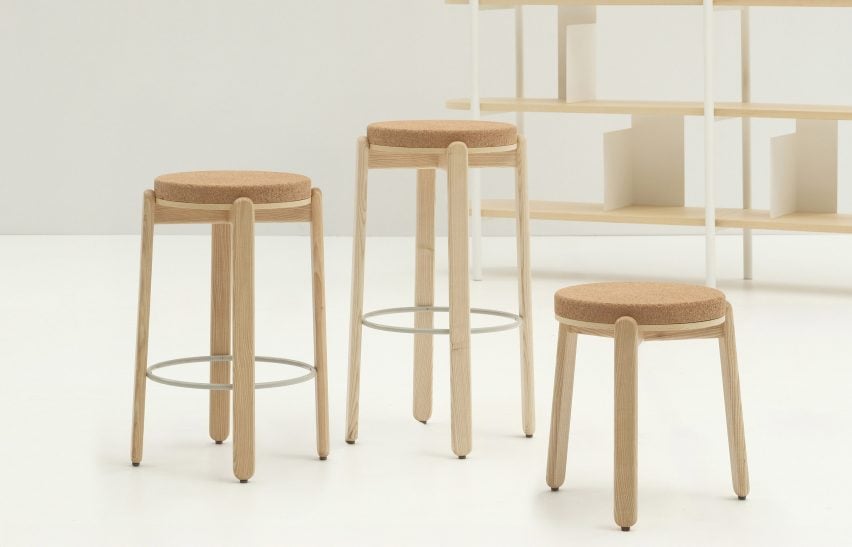
Hutten, who has long advocated for a ban on plastic, was challenged to make a chair from Wastea – a Turkish plant-based leather alternative made from tea waste.
The material comes in square sheets and the desire to use it efficiently with minimal wastage informed the chair’s design, which sees boxy Wastea segments fixed to the timber frame with six screws.
Koens herself wanted to target bar stools, which often include a small amount of foam within an upholstered seat. There, Koens noted, the foam is used both for softness but also warmth, so our legs don’t meet cold metal or wood.
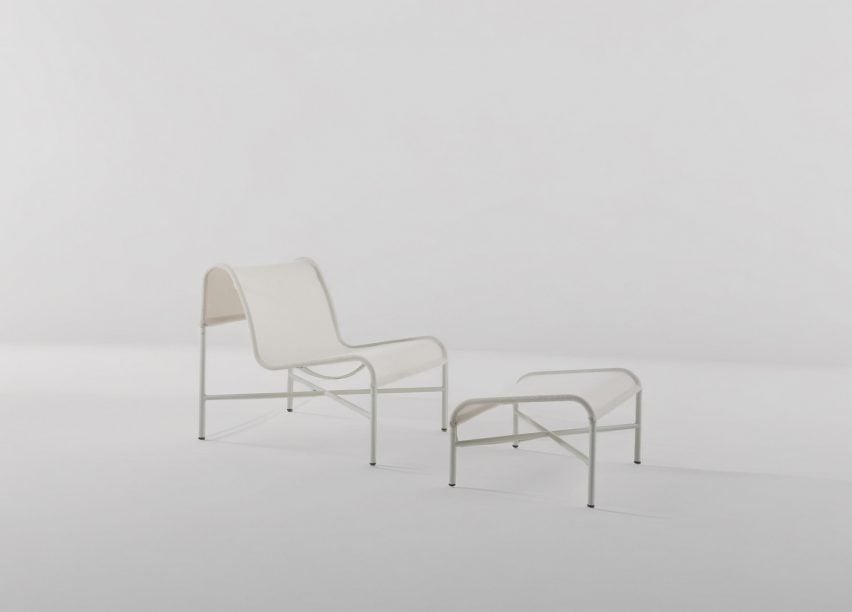
For this reason, Koens chose natural cork for the top of her Harvest stool, as the material retains heat while also having a bit of give.
Van Daal was given the brief to pursue one of her specialities, biomimicry, by exploring what lessons about comfort could be drawn from spiderwebs.
The resulting chair, titled Tensil, is light and minimal, with a textile seat stretched over a metal frame. But according to Koens, it gives just the right angle and support for comfort.
Rounding out the collection are Jones & Partners’ Koza chair, with backrests made from 3D-knitted recycled PET bottle yarn in a zero-waste process, and Koens’ Reviv chair, made from Dutch brand Planq’s Rezign recycled textile veneer.
All of the chairs are designed without glues or staples to enable disassembly for renewal or recycling, with Harvest’s cork top being held in place only by the stool’s legs and the Tensil fabric simply pulled over the frame.
These types of chairs would not conventionally use as much foam as, for instance, a modern-day sofa.
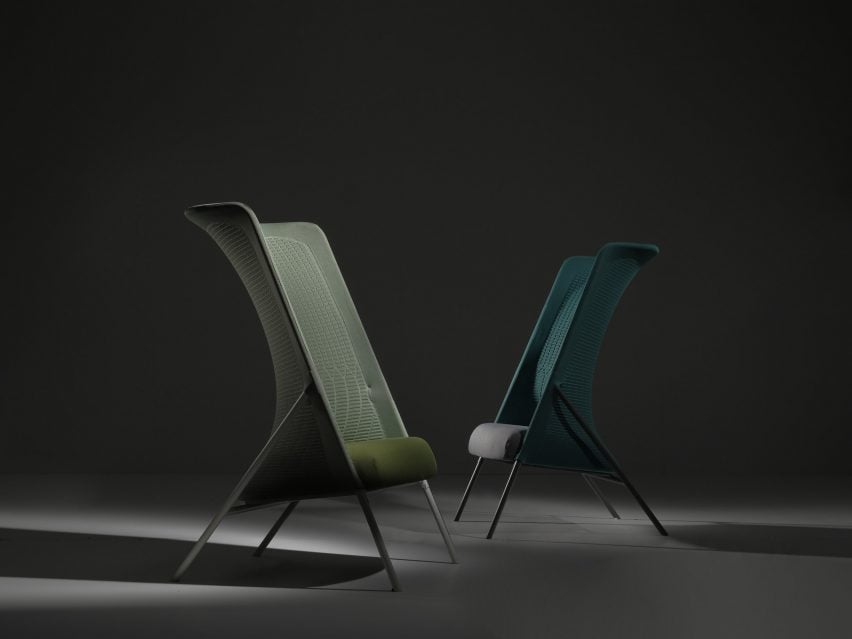
But Koens stresses that this iteration of Rethink Softly was all about targetting the contract market, which she argues should be approached very differently to residential interiors.
“The clients of Deberenn are mostly projects,” she said. “Projects do not need fluffy, bulky soft seating. There we can go very minimalistic. A product giving you enough comfort for 50 minutes is doing a perfect job.”
She hopes to take on the bigger challenge of domestic seating with the next iteration of Rethink Softly. For this round, she was able to avoid using any bio-based alternative foams, which she thinks are still too expensive to offer a true substitute.
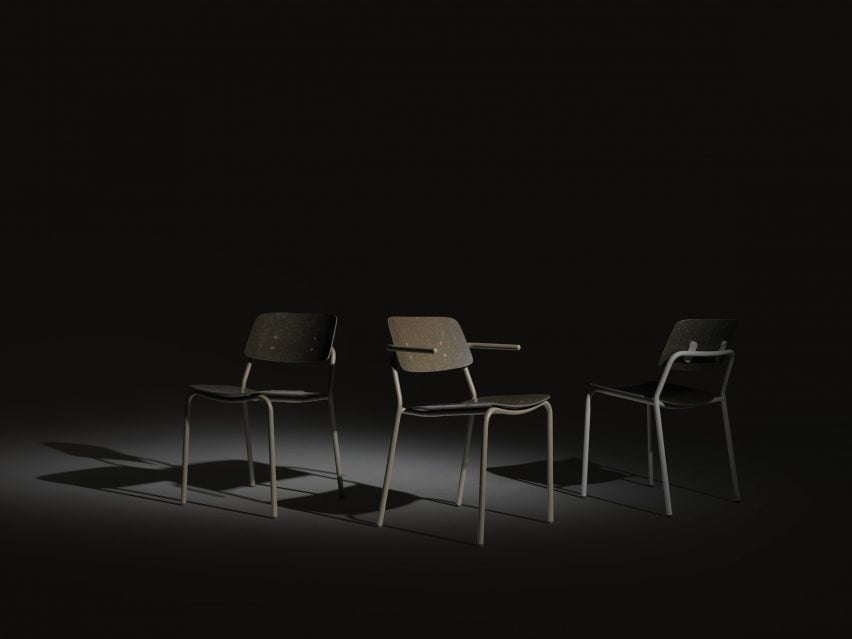
“Many companies are trying now to replicate or to work with alternative foams in the same traditional way we’re creating our soft seating now,” Koens said. “But if you’re going to be much higher in price, you can’t compete and it’s not a solution.”
One of the Rethink Softly chairs, Koza, still includes foam in its seat cushion, but Koens admits that this was a compromise after their preferred seat prototype failed.
Koens’ previous work has included the Otura stackable drawer system, which she created during her time at Design Academy Eindhoven and now produces through her Otura studio.

